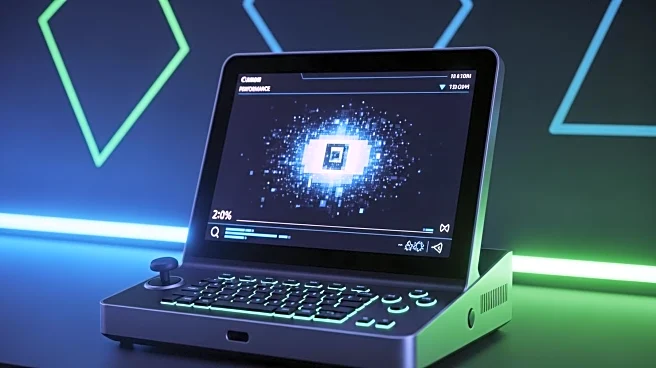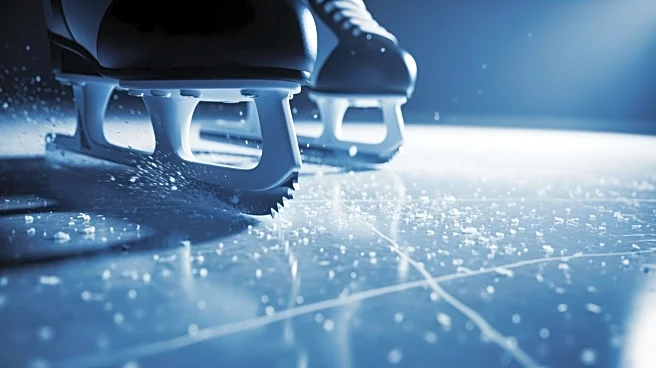What's Happening?
Gears of War: Reloaded, recently released on PC, is experiencing significant performance issues specifically with NVIDIA's RTX-50 series GPUs. The game, powered by a modified Unreal Engine 3, was tested using various GPUs including NVIDIA's RTX 2080Ti, RTX 3080, RTX 4090, RTX 5080, and RTX 5090. While the game runs smoothly at 1080p and 1440p settings across all tested GPUs, it struggles at 4K settings, particularly with the RTX-50 series. These GPUs are facing texture streaming and stuttering issues, which have been present since the game's beta phase. NVIDIA is aware of these problems but has not yet provided a timeline for a fix.
Why It's Important?
The performance issues with NVIDIA's RTX-50 series GPUs in Gears of War: Reloaded highlight potential challenges for gamers and the company. As NVIDIA's RTX-50 series represents its latest technology, unresolved issues could impact consumer confidence and sales. Gamers using these GPUs may experience diminished gameplay quality, leading to dissatisfaction and potential shifts to competing products. This situation underscores the importance of timely software updates and hardware compatibility in maintaining market leadership and customer satisfaction in the competitive gaming industry.
What's Next?
NVIDIA is expected to address the texture streaming and stuttering issues affecting the RTX-50 series GPUs. Until a fix is implemented, gamers using these GPUs are advised to avoid Gears of War: Reloaded. The company may release driver updates or patches to resolve these issues, which could restore performance and user experience. Stakeholders, including gamers and industry analysts, will be watching closely for NVIDIA's response and any impact on its reputation and market position.
Beyond the Headlines
The ongoing issues with NVIDIA's RTX-50 series GPUs in Gears of War: Reloaded may have broader implications for the gaming industry. It raises questions about the reliability of new GPU technologies and the importance of thorough testing before release. This situation could influence future game development and hardware compatibility strategies, emphasizing the need for collaboration between game developers and hardware manufacturers to ensure optimal performance.









